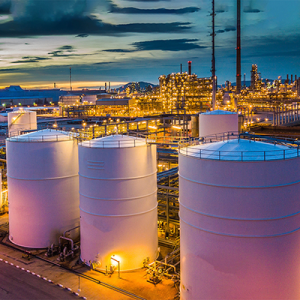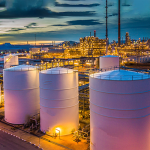Projects in Refineries
Oil refineries are vast industrial complexes that involve a wide array of chemical engineering projects. Building or upgrading a refinery involves many contractors working together on a multitude of projects. Some of the major types of projects in a refinery are:
• Distillation units: Distillation towers are the workhorses of any refinery. They separate crude oil and refined products into different fractions by heating and condensing. Installing or expanding distillation units often requires significant civil engineering work.
• Cokers: Coking units convert residual oil into lighter products. They involve complex reactors and heat exchangers operating at high temperatures and pressures.
• Catalytic crackers: Catalytic crackers break large hydrocarbon molecules into shorter ones to form motor fuels. The units use metal oxide catalysts in fluidized beds to maximize conversion. They require careful material selection and corrosion resistance.efforts.
Refinery

• Hydroprocessing units: These include desulfurization, hydrocracking, hydrotreating and other units that use hydrogen under pressure. They utilize reactors, heat exchangers, pumps and specialized components.
• Storage tanks: Refineries have numerous large tanks for storing crude oil, intermediate products and end products. Constructing new or modifying existing tanks involves thickness calculations, material selection and precautions to minimize hazards.
• Pipelines and loading racks: Refineries have extensive networks of pipes to carry fluids between process units. They connect to loading racks to fill tanker trucks and railcars.
• Utility plants: A refinery’s own power plants, cooling systems and boiler units provide essential utilities. These plants often undergo changes as other units expand.
So in summary, projects in oil refineries cover a wide spectrum, from distillation towers to storage tanks to specialized process units. All require intricate engineering, design and construction

 Submit your manual request
Submit your manual request Chemistry
Chemistry Construction
Construction Control
Control Counseling
Counseling Design and Engineering
Design and Engineering Electricity
Electricity Equipment repair
Equipment repair Instrumentation
Instrumentation Mechanic
Mechanic oil
oil Operation, Repair and Maintenance
Operation, Repair and Maintenance Overhaul
Overhaul Period services
Period services Test & Commissioning
Test & Commissioning Trade
Trade